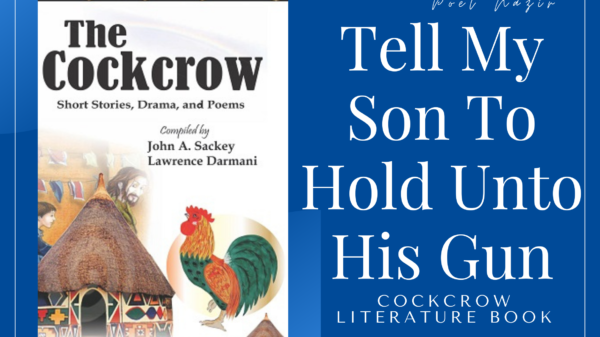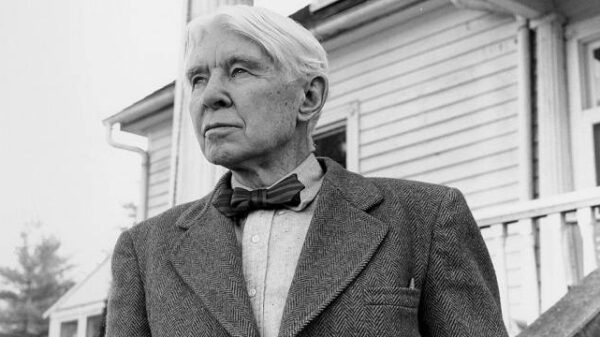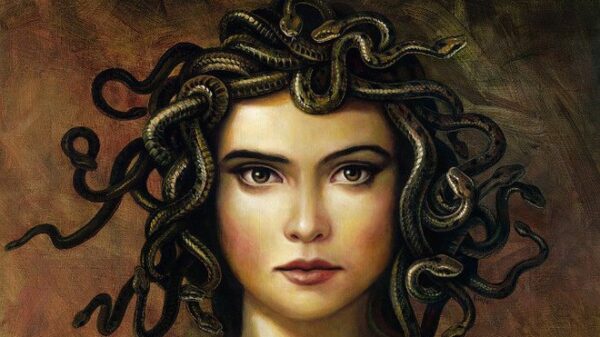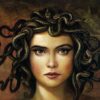William Shakespeare is famously considered as the greatest writer in the English Language. He is also known to be a playwright and a poet who’s written a quite number of popular poems and plays which are in use as of today. Throughout the writer’s life, he wrote sonnets which are known as Shakespearean Sonnet.
He also write two long narrative poems published in the 1590s and some few other verses. His collection which has a total of 154 sonnets was first published in the year 1609. The sonnets thread the path of three quatrains and a final couplet. The beginning of the third quatrain sometimes presents an unexpected quick thematic ‘turn’, example; the Volta. The couplet mostly have the summary of the theme of the poem or is made to preface a new look at the theme.
This is what is largely known as the Shakespearean Sonnet because he was the first practitioner of that invention. Aside sonnets the writer also wrote some other forms of poems.
Table of Contents
Features of Shakespearean Sonnet
Sonnets follow a pattern of 14 lines and comes with rules. There are currently two known types of Sonnets; Shakespearean Sonnet and Petrarchan Sonnet(Poet Petrarch). The rules and features of a Shakespearean Sonnet has the following structure;
- Shakespearean Sonnet has 14 lines
- 3 quatrains (4 lines each) and couplet (2 lines).
- The 14 lines are divided into four subsections
- The first 3 quatrains have 4 lines each with the second and 4 lines of each group containing rhyming words.
- The sonnet then concludes with a two-line(couplet), and these lines rhyme with one another.
- There are typically ten syllables per line, which are phrased in iambic pentameter.
- Rhyme Scheme: ABAB, CDCD, EFEF, GG
Read Also: Who Am I? A Poem By Carl Sandburg
Below Are 10 Most Popular Poems Of Shakespeare

1. The Phoenix And The Turtle
Written By William Shakespeare
Let the bird of loudest lay
On the sole Arabian tree
Herald sad and trumpet be,
To whose sound chaste wings obey.
But thou shrieking harbinger,
Foul precurrer of the fiend,
Augur of the fever’s end,
To this troop come thou not near.
From this session interdict
Every fowl of tyrant wing,
Save the eagle, feather’d king;
Keep the obsequy so strict.
Let the priest in surplice white,
That defunctive music can,
Be the death-divining swan,
Lest the requiem lack his right.
And thou treble-dated crow,
That thy sable gender mak’st
With the breath thou giv’st and tak’st,
‘Mongst our mourners shalt thou go.
Here the anthem doth commence:
Love and constancy is dead;
Phoenix and the Turtle fled
In a mutual flame from hence.
So they lov’d, as love in twain
Had the essence but in one;
Two distincts, division none:
Number there in love was slain.
Hearts remote, yet not asunder;
Distance and no space was seen
‘Twixt this Turtle and his queen:
But in them it were a wonder.
So between them love did shine
That the Turtle saw his right
Flaming in the Phoenix’ sight:
Either was the other’s mine.
Property was thus appalled
That the self was not the same;
Single nature’s double name
Neither two nor one was called.
Reason, in itself confounded,
Saw division grow together,
To themselves yet either neither,
Simple were so well compounded;
That it cried, “How true a twain
Seemeth this concordant one!
Love has reason, reason none,
If what parts can so remain.”
Whereupon it made this threne
To the Phoenix and the Dove,
Co-supremes and stars of love,
As chorus to their tragic scene:
threnos
Beauty, truth, and rarity,
Grace in all simplicity,
Here enclos’d, in cinders lie.
Death is now the Phoenix’ nest,
And the Turtle’s loyal breast
To eternity doth rest,
Leaving no posterity:
‘Twas not their infirmity,
It was married chastity.
Truth may seem but cannot be;
Beauty brag but ’tis not she;
Truth and beauty buried be.
To this urn let those repair
That are either true or fair;
For these dead birds sigh a prayer.
Poem Explained Here ➡️ The Phoenix And The Turtle a Poem By William Shakespeare
2 Sonnet 73: That Time Of Year Thou Mayst In Me Behold
Written By William Shakespeare
That time of year thou mayst in me behold
When yellow leaves, or none, or few, do hang
Upon those boughs which shake against the cold,
Bare ruin’d choirs, where late the sweet birds sang.
In me thou see’st the twilight of such day
As after sunset fadeth in the west,
Which by and by black night doth take away,
Death’s second self, that seals up all in rest.
In me thou see’st the glowing of such fire
That on the ashes of his youth doth lie,
As the death-bed whereon it must expire,
Consum’d with that which it was nourish’d by.
This thou perceiv’st, which makes thy love more strong,
To love that well which thou must leave ere long.
Poem Explained Here ➡️ Sonnet 73: That Time Of Year Thou Mayst In Me Behold By William Shakespeare
3. The Rape of Lucrece
Written By William Shakespeare
Her lily hand her rosy cheek lies under,
Cozening the pillow of a lawful kiss;
Who, therefore angry, seems to part in sunder,
Swelling on either side to want his bliss;
Between whose hills her head entombed is;
Where like a virtuous monument she lies,
To be admired of lewd unhallowed eyes.
Without the bed her other fair hand was,
On the green coverlet, whose perfect white
Showed like an April daisy on the grass,
With pearly sweat resembling dew of night.
Her eyes, like marigolds, had sheathed their light,
And canopied in darkness sweetly lay
Till they might open to adorn the day.
Her hair like golden threads played with her breath
O modest wantons, wanton modesty!
Showing life’s triumph in the map of death,
And death’s dim look in life’s mortality.
Each in her sleep themselves so beautify
As if between them twain there were no strife,
But that life lived in death, and death in life.
Her breasts like ivory globes circled with blue,
A pair of maiden worlds unconquerèd,
Save of their lord no bearing yoke they knew,
And him by oath they truly honourèd.
These worlds in Tarquin new ambition bred,
Who like a foul usurper went about
From this fair throne to heave the owner out.
What could he see but mightily he noted?
What did he note but strongly he desired?
What he beheld, on that he firmly doted,
And in his will his willful eye he tired.
With more than admiration he admired
Her azure veins, her alabaster skin,
Her coral lips, her snow-white dimpled chin.
As the grim lion fawneth o’er his prey
Sharp hunger by the conquest satisfied,
So o’er this sleeping soul doth Tarquin stay,
His rage of lust by gazing qualified;
Slacked, not suppressed; for, standing by her side,
His eye, which late this mutiny restrains,
Unto a greater uproar tempts his veins.
And they, like straggling slaves for pillage fighting,
Obdurate vassals fell exploits effecting.
In bloody death and ravishment delighting,
Nor children’s tears nor mothers’ groans respecting,
Swell in their pride, the onset still expecting.
Anon his beating heart, alarum striking,
Gives the hot charge and bids them do their liking.
His drumming heart cheers up his burning eye,
His eye commends the leading to his hand;
His hand, as proud of such a dignity,
Smoking with pride, marched on to make his stand
On her bare breast, the heart of all her land,
Whose ranks of blue veins, as his hand did scale,
Left their round turrets destitute and pale.
They, mustering to the quiet cabinet
Where their dear governess and lady lies,
Do tell her she is dreadfully beset
And fright her with confusion of their cries.
She, much amazed, breaks ope her locked-up eyes,
Who, peeping forth this tumult to behold,
Are by his flaming torch dimmed and controlled.
Imagine her as one in dead of night
From forth dull sleep by dreadful fancy waking,
That thinks she hath beheld some ghastly sprite,
Whose grim aspect sets every joint a-shaking.
What terror ‘tis! but she, in worser taking,
From sleep disturbèd, heedfully doth view
The sight which makes supposèd terror true.
Wrapped and confounded in a thousand fears,
Like to a new-killed bird she trembling lies.
She dares not look; yet, winking, there appears
Quick-shifting antics ugly in her eyes.
Such shadows are the weak brain’s forgeries,
Who, angry that the eyes fly from their lights,
In darkness daunts them with more dreadful sights.
His hand, that yet remains upon her breast
(Rude ram, to batter such an ivory wall!)
May feel her heart (poor citizen) distressed,
Wounding itself to death, rise up and fall,
Beating her bulk, that his hand shakes withal.
This moves in him more rage and lesser pity,
To make the breach and enter this sweet city.
Poem Explained Here ➡️ The Rape of Lucrece a Poem By William Shakespeare
4. Sonnet 1: From Fairest Creatures We Desire Increase
Written By William Shakespeare
From fairest creatures we desire increase,
That thereby beauty’s rose might never die,
But as the riper should by time decease,
His tender heir might bear his memory;
But thou, contracted to thine own bright eyes,
Feed’st thy light’s flame with self-substantial fuel,
Making a famine where abundance lies,
Thyself thy foe, to thy sweet self too cruel.
Thou that art now the world’s fresh ornament
And only herald to the gaudy spring,
Within thine own bud buriest thy content,
And, tender churl, mak’st waste in niggarding.
Pity the world, or else this glutton be,
To eat the world’s due, by the grave and thee.
Poem Explained Here➡️ Sonnet 1: From Fairest Creatures We Desire Increase a Poem By William Shakespeare
5. Sonnet 20: A Woman’s Face With Nature’s Own Hand Painted
Written By William Shakespeare
A woman’s face with nature’s own hand painted
Hast thou, the master-mistress of my passion;
A woman’s gentle heart, but not acquainted
With shifting change as is false women’s fashion;
An eye more bright than theirs, less false in rolling,
Gilding the object whereupon it gazeth;
A man in hue, all hues in his controlling,
Which steals men’s eyes and women’s souls amazeth.
And for a woman wert thou first created,
Till nature as she wrought thee fell a-doting,
And by addition me of thee defeated
By adding one thing to my purpose nothing.
But since she pricked thee out for women’s pleasure,
Mine be thy love and thy love’s use their treasure.
Poem Explained Here ➡️ Sonnet 20: A Woman’s Face With Nature’s Own Hand Painted a Poem By William Shakespeare
6. Sonnet 29: When, In Disgrace With Fortune And Men’s Eyes
Written By William Shakespeare
When, in disgrace with fortune and men’s eyes,
I all alone beweep my outcast state,
And trouble deaf heaven with my bootless cries,
And look upon myself and curse my fate,
Wishing me like to one more rich in hope,
Featured like him, like him with friends possessed,
Desiring this man’s art and that man’s scope,
With what I most enjoy contented least;
Yet in these thoughts myself almost despising,
Haply I think on thee, and then my state,
(Like to the lark at break of day arising
From sullen earth) sings hymns at heaven’s gate;
For thy sweet love remembered such wealth brings
That then I scorn to change my state with kings.
Poem Explained Here ➡️ Sonnet 29: When, In Disgrace With Fortune And Men’s Eyes a Poem By William Shakespeare
7. Sonnet 130: My Mistress’ Eyes Are Nothing Like The Sun
Written By William Shakespeare
My mistress’ eyes are nothing like the sun;
Coral is far more red than her lips’ red;
If snow be white, why then her breasts are dun;
If hairs be wires, black wires grow on her head.
I have seen roses damasked, red and white,
But no such roses see I in her cheeks;
And in some perfumes is there more delight
Than in the breath that from my mistress reeks.
I love to hear her speak, yet well I know
That music hath a far more pleasing sound;
I grant I never saw a goddess go;
My mistress, when she walks, treads on the ground.
And yet, by heaven, I think my love as rare
As any she belied with false compare.
Poem Explained Here ➡️ Sonnet 130: My Mistress’ Eyes Are Nothing Like The Sun a Poem By William Shakespeare
8. Sonnet 18: Shall I Compare Thee To A Summer’s Day
Written By William Shakespeare
Shall I compare thee to a summer’s day?
Thou art more lovely and more temperate:
Rough winds do shake the darling buds of May,
And summer’s lease hath all too short a date;
Sometime too hot the eye of heaven shines,
And often is his gold complexion dimm’d;
And every fair from fair sometime declines,
By chance or nature’s changing course untrimm’d;
But thy eternal summer shall not fade,
Nor lose possession of that fair thou ow’st;
Nor shall death brag thou wander’st in his shade,
When in eternal lines to time thou grow’st:
So long as men can breathe or eyes can see,
So long lives this, and this gives life to thee.
Poem Explained Here ➡️ Sonnet 18: Shall I Compare Thee To A Summer’s Day a Poem By William Shakespeare
9. Venus and Adonis
Written By William Shakespeare
Even the sun with purple-colour’d face
Had ta’en his last leave of the weeping morn,
Rose-cheek’d Adonis tried him to the chase;
Hunting he lov’d, but love he laugh’d to scorn;
Sick-thoughted Venus makes amain unto him,
And like a bold-fac’d suitor ‘gins to woo him.
‘Thrice fairer than myself,’ thus she began,
‘The field’s chief flower, sweet above compare,
Stain to all nymphs, more lovely than a man,
More white and red than doves or roses are;
Nature that made thee, with herself at strife,
Saith that the world hath ending with thy life.
Read Full Poem & Explanation Here ➡️ Venus and Adonis A Poem By William Shakespeare
10. Sonnet 116: Let Me Not To The Marriage Of True Minds
Written By William Shakespeare
Let me not to the marriage of true minds
Admit impediments. Love is not love
Which alters when it alteration finds,
Or bends with the remover to remove.
O no! it is an ever-fixed mark
That looks on tempests and is never shaken;
It is the star to every wand’ring bark,
Whose worth’s unknown, although his height be taken.
Love’s not Time’s fool, though rosy lips and cheeks
Within his bending sickle’s compass come;
Love alters not with his brief hours and weeks,
But bears it out even to the edge of doom.
If this be error and upon me prov’d,
I never writ, nor no man ever lov’d.
Poem Explained Here ➡️ Sonnet 116: Let Me Not To The Marriage Of True Minds a Poem By William Shakespeare










